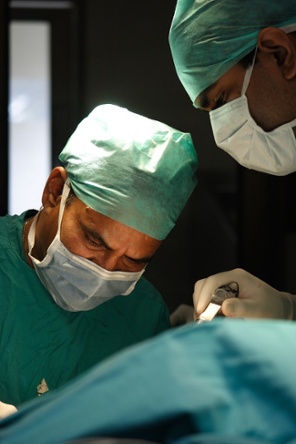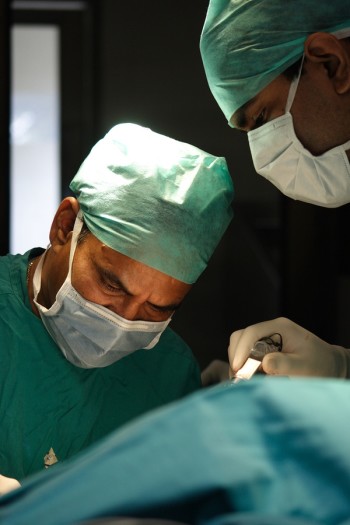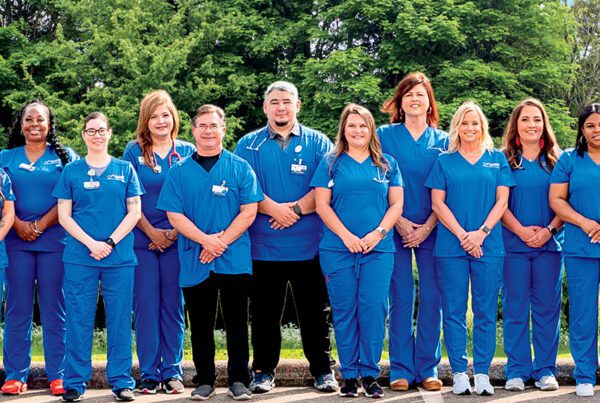Texas MD talks with Donald Dilworth, M.D., FACS, about hernias, reflux disease, and the best ways to alleviate and treat both ailements.
Texas MD: What is a hernia?
Dr. Dilworth: The formal medical definition of a hernia is “a condition in which part of an organ is displaced and protrudes through the wall of the cavity containing it.” But most lay people consider hernias as a break in the abdominal wall musculature.
Texas MD: Who can get a hernia, and is it dangerous?
Dr. Dilworth: Anyone can get a hernia. Some people are born with one. Others are born with a weakness that allows a hernia to form later in life. Most develop a hernia by having repeated or excessive strain put on a muscle wall. This can occur from lifting, exercise, pregnancy, weight gain, trauma or from having a prior incision.
A hernia can be a serious medical condition and even lead to emergency surgery. Typically, this occurs when the intestines become trapped through the hole in the muscle and begin to swell, a condition known as incarceration. As the intestine swells, it becomes permanently trapped outside, and this can lead to ischemia or death of the intestine, which is called strangulation. Both of these conditions are surgical emergencies and require an operation to treat them effectively.
Texas MD: What types of hernias can people get?
Dr. Dilworth: The more usual types of hernias people can get are inguinal or groin hernias, umbilical hernias, ventral or front-of-the-abdomen hernias, femoral hernias, incisional and hiatal hernias.
Texas MD: What is a hiatal hernia?
Dr. Dilworth: A hiatal hernia is a special type of hernia of the diaphragm in the area where the esophagus normally passes through. With a hiatal hernia, this area stretches out and allows the stomach, and even other organs, to push above the diaphragm. This condition can be caused by coughing, vomiting, straining with constipation and lifting. This can lead to upper abdominal or lower chest pain, reflux, hoarseness, belching, difficulty swallowing food, and a hiatal hernia can even cause a person to throw up undigested food.
“People with new onset adult asthma, reactive airway disease, or hoarseness should be checked for reflux disease and a hiatal hernia, which are leading causes of those problems.”
Texas MD: How are hernias and gastroesophageal reflux related?
Dr. Dilworth: A hiatal hernia can cause, or worsen, existing reflux disease because the muscle at the lower end of the esophagus, that prevents reflux, can weaken or become kinked by the stomach, causing it to malfunction.
Texas MD: Is surgery a viable option for combined reflux disease and a hiatal hernia, and if so what cases?
Dr. Dilworth: Some smaller hiatal hernias with minimal reflux can be treated with diet modifications and acid-reducing medications. Larger hernias, or ones related to progressively worsening reflux disease, should be treated surgically to improve symptoms, reduce cancer risk, and reduce risk of aspiration.

Texas MD: What type of surgery is needed, and how is it performed?
Dr. Dilworth: The surgical procedure for repairing a hiatal hernia is to pull the stomach and the end of the esophagus through the hole, back into the abdomen, and then repair the weakness in the diaphragm. This repair can be done by placing sutures in the muscle to tighten it for smaller hernias, while in larger defects the muscle may need to be supported by mesh or biological material.
The reflux is then treated by wrapping the upper stomach around the esophagus to form a collar that helps prevent stomach contents from refluxing. These procedures can be performed laparoscopically on most patients and have been considered the gold standard for 15 to 20 years. Recently, the use of robotic surgical platforms has improved the performance and speed at which the surgery can be accomplished, while still using the same four or five small incisions that laparoscopic surgery does. In rare cases, sometimes the need for a larger open surgical procedure is required.
Texas MD: What is something surprising that people may not know about reflux disease and hiatal hernia surgery?
Dr. Dilworth: People with new onset adult asthma, reactive airway disease, or hoarseness should be checked for reflux disease and a hiatal hernia, which are leading causes of those problems. From a surgical perspective, the surgery is very well tolerated. Patients typically go home the day following surgery, and they can be back to work in one to two weeks and at regular activity in two weeks.
All types of hernias, including hiatal hernias, and many other surgical conditions can be treated at STAT Surgical by Dr. Dilworth and his partners. Donald D. Dilworth, M.D., FACS, is a board-certified general surgeon practicing in San Antonio.







Recent Comments